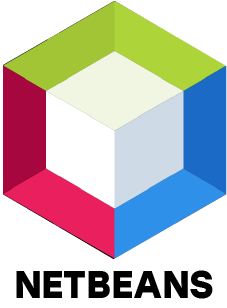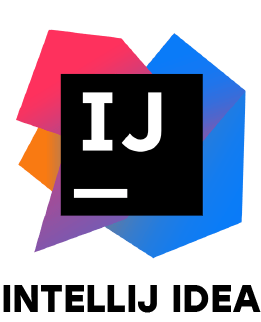Additional Info
Career Opportunities in the field of Java Programming:
Java programming has been around for over twenty-four years, and the demand for Java developers has been steadily increasing since the programming language rose to prominence. Every time a topic arises that the demand for Java programming is about to dwindle, the demand for more and more Java developers has demonstrated its growth in terms of both popularity and usage. Along with the pre-existing technologies, as previously stated, there are a number of new technologies that are expected to be absorbed by Java. Being on your feet and preparing yourself to meet industry standards increases your chances of landing a successful career in the field of Java programming.
Here are a few job descriptions in the field of Java programming:
- Software Engineer
- Lead Developer
- Senior Software Engineer
- Lead Web Developer
- Lead Java Developer
- Product Manager (Technical niche)
Future scope of Java:
According to the TIOBE index for programming language popularity, Java has consistently ranked first as the most popular programming language over the last few years. With the support of corporations such as Oracle and many other large technology corporations, Java has established a strong foothold in the industry. Under the sponsorship of these corporations, many powerful and useful libraries and frameworks are developed, which are greatly appreciated by the developer community. It also has a very strong and active developer community that is extremely supportive in times of need. With such a large community and user base, Java is clearly the programming language of choice for developing various technologies in various fields. Java is unquestionably the foundation of billions of applications and devices. Some of the major applications and technologies where Java is used are discussed in greater detail.
Features of Java:
The primary goal of developing the Java programming language was to make it portable, simple, and secure. Apart from that, there are some excellent features that contribute significantly to the popularity of this language. Java features are also referred to as java buzzwords.
Simple:- Java is a very simple language to learn, with syntax that is simple, clean, and easy to understand. Java, according to Sun, is a simple programming language because: Java syntax is based on C++ (making it easier for programmers to learn after C++). Many complex and infrequently used features, such as explicit pointers, operator overloading, and so on, have been removed from Java. Because Java has Automatic Garbage Collection, there is no need to remove unreferenced objects.
Object-oriented:- Java is a programming language that is object-oriented. In Java, everything is an object. Object-oriented means that we organise our software as a collection of various types of objects that contain both data and behaviour. Object-oriented programming (OOPs) is a methodology that provides some rules to simplify software development and maintenance.
Secured:- The most well-known feature of Java is its security. We can create virus-free systems using Java. Java is safe because No explicit pointer. Java Programs run inside a virtual machine sandbox.
Robust:- Robust simply means powerful. Java is strong because it employs strict memory management. There is a scarcity of pointers for avoiding security issues. In Java, there is automatic garbage collection, which runs on the Java Virtual Machine to get rid of objects that are no longer being used by a Java application. In Java, there is exception handling as well as a type checking mechanism. All of these factors contribute to Java's robustness.
Architecture-neutral:- Java is architecture agnostic because there are no implementation-dependent features, such as the fixed size of primitive types. The int data type in C programming takes up 2 bytes of memory for 32-bit architecture and 4 bytes of memory for 64-bit architecture. However, it takes up 4 bytes of memory in Java for both 32 and 64-bit architectures.
Portable:- Java is portable because it allows you to move Java bytecode from one platform to another. It does not necessitate any implementation.
High-performance:- Because Java bytecode is "close" to native code, it is faster than other traditional interpreted programming languages. It is still slightly slower than a compiled language (for example, C++). Because Java is an interpreted language, it is slower than compiled languages such as C, C++, and others.
Distributed:- Java is distributed because it allows users to create distributed applications in Java. RMI and EJB are used to build distributed applications. This Java feature allows us to access files by calling the methods from any machine on the internet.
Multi-threaded:- A thread is a separate programme that runs concurrently. By defining multiple threads, we can write Java programmes that handle multiple tasks at once. The main advantage of multi-threading is that each thread does not take up memory. It has a shared memory area. Threads are essential for multi-media, Web applications, and so on.
Dynamic:- Java is a dynamic programming language. It allows for the dynamic loading of classes. It means that classes are loaded as needed. It also supports functions written in its native languages, C and C++.
Job roles and responsibilities of Java:
A Java developer is responsible for a variety of tasks throughout the application development lifecycle, from concept and design to testing. Other responsibilities they may have include:
- Phases of java application design, implementation, and maintenance.
- Participation in software and architectural development activities.
- Execute software analysis, programming, testing, and debugging tasks.
- Identifying issues with production and non-production applications.
- Changing requirements into conditions.
- Create, test, deploy, and support application software.
- Changes should be suggested to improve existing Java application processes.
- Create technical designs for app development.
- Create application code for Java applications.
Advantages of Java:
The primary goal of developing the Java programming language was to make it portable, simple, and secure. Apart from that, there are some excellent features that contribute significantly to the popularity of this language. Java features are also referred to as java buzzwords.
Simple:- Java is easier to use, write, compile, debug, and learn than other programming languages. Because Java is less complicated than C++, it employs automatic memory allocation and garbage collection.
Object-oriented:- It enables you to create standard programmes and code that can be reused.
Platform-Independent:- Java code can run on any machine and does not require any special software to be installed; however, the JVM must be present on the machine.
Distributed computing:- Distributed computing is the collaboration of multiple computers on a network. It aids in the development of network applications that can contribute to both data and application functionality.
Secure:- There is no explicit pointer in Java. Aside from that, it has a security manager that controls class access.
Memory allocation:- In Java, memory is divided into two sections: heap and stack. When we declare a variable, JVM allocates memory from either the stack or the heap. It aids in the storage and retrieval of information.
Multithreaded:- It is possible for a programme to perform multiple tasks at the same time.
Salary package of Java:
In India, the average Java developer salary is Rs 443,568 per year, or Rs 175.00 per hour. The annual salary could range between Rs. 202,602 and Rs. 1,102,825 depending on factors such as location, experience level, company profile, and so on. You've already read about how high an individual's salary can go! However, another factor to consider at this point is that the developer's salary package will be determined by the firm that hires them. So, if you are hired as a fresher by Google, you can expect to earn a higher salary than you would at a mid-cap company.








































